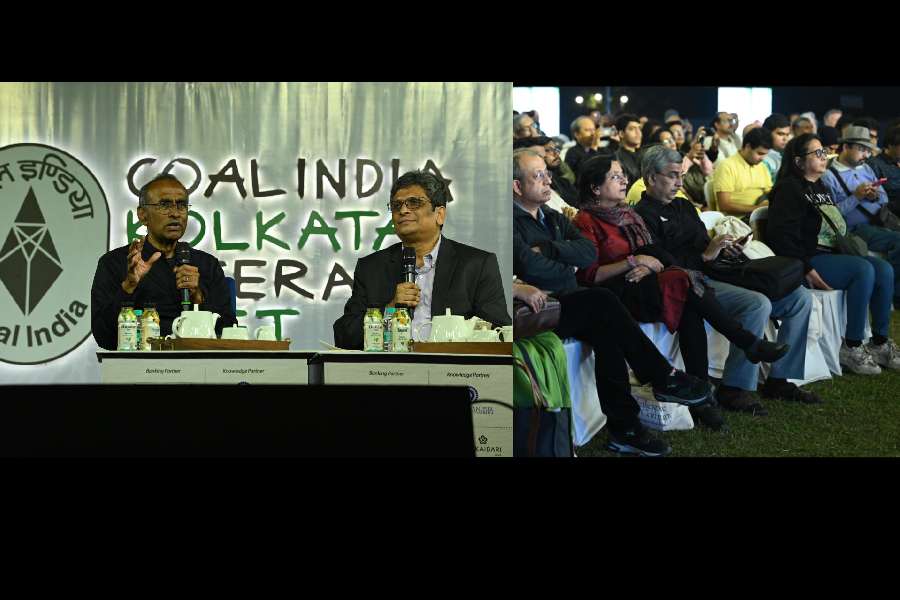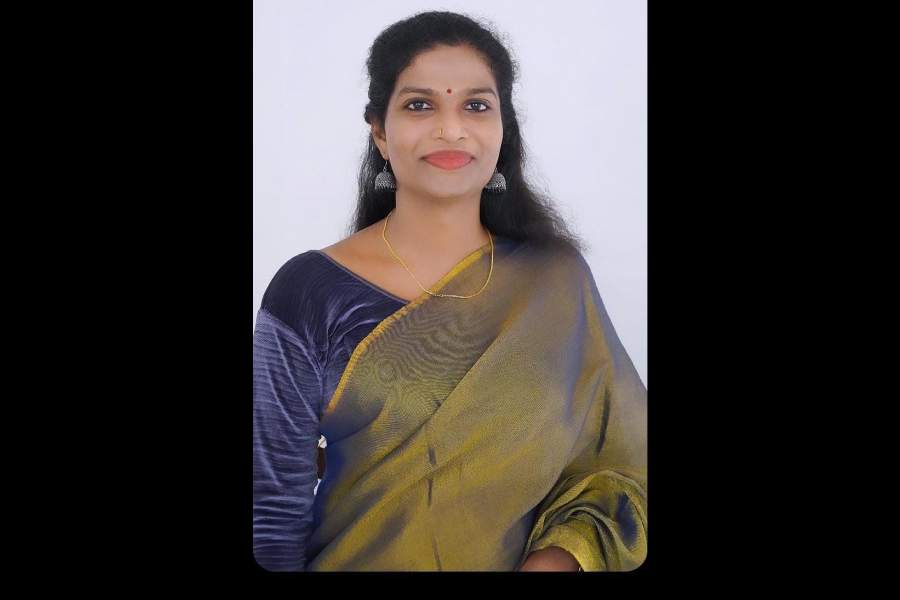The deep-rooted fear of death is ingrained in human nature, without which we would be at an evolutionary disadvantage, Nobel laureate Venky Ramakrishnan told a Calcutta audience earlier this week.
He was in conversation with physicist Somak Raychaudhury on Wednesday, Day 2 of the Coal India Kolkata Literary Meet 2025, in association with The Telegraph, on the lawns of the Agri-Horticultural Society of India in Alipore.
The discussion revolved around Ramakrishnan’s new book, Why We Die: The New Science of Ageing and the Quest for Longevity, where he delves into what causes ageing and examines the efforts to extend the human lifespan.
“Why should we live longer? Does society gain from people in general living longer?”
asked Raychaudhury, the vice-chancellor of Ashoka University.
Ramakrishnan answered: “It is not to do with society.... We think of mortality as cessation of existence. We don’t want that.... If you did not fear death, you would be at an evolutionary disadvantage. You would do risky things and die prematurely before you have a chance to reproduce. The deep-rooted fear of death is ingrained in us as part of our biology.”
Raychaudhuri said he had been thinking of reading Ramakrishnan’s new book for
a long time.
“My wife kept taunting me, saying ‘you seem to have a block against starting to read it’. It is such a grim title. The subtitle is far more positive.”
But when he actually started reading it, he finished it in a day.
“What attracted you to write this book? Does it come directly from your life’s work?” Raychaudhuri asked.
Ramakrishnan said his work was peripherally related to the book. “By and large, my own work doesn’t directly revolve around ageing. But it is very close to the field.”
He wrote this book so he could take an objective look at the “rapid strides in ageing research”.
Despite the long-standing existential question about why people age and die, it is only in the past 50 years or so that “biology has come up with some answers for why it happens the way it does”, said Ramakrishnan, who shared the 2009 Nobel Prize in chemistry for uncovering the structure of the ribosome.
“This means that for the first time, the knowledge we have gained, or the tools we have developed, may allow us to tackle ageing. That, in turn, has led to a rather big growth in ageing research or anti-ageing industry.
“There are some reasons for that. People are living longer. Fertility rates are going down.... So, as societies are getting older, they are being replaced more slowly. You have an increasingly ageing population. There is a real need to keep this population healthy in old age. That is driving a lot of research,” he said.
Some of the more adventurous lot, described by Ramakrishnan as “the cowboy end of the spectrum”, wanted to postpone death altogether.
“This is also driving a lot of what I would call charlatan and dubious practices,” he said.
Since he did not have a vested interest, he could take a hard look at all of it, Ramakrishnan said.
“I don’t have a company that works on ageing. I am not selling you a product or a pill.... I thought I could afford to be very pragmatic and objective,” he said.











